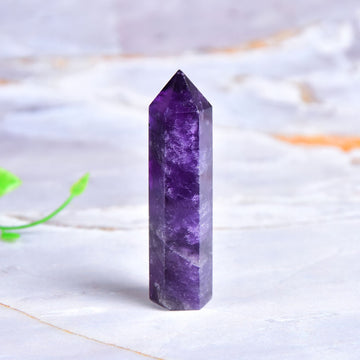Why do we eat? Have you given it much thought? I know why most people skip breakfast… if you were stuck in rush hour, attempting to devour a pastry and coffee while answering the phone and dodging cars all at the same time, you’d skip a meal too. It seems like most of our food is eaten too fast for convenience or eaten for taste rather than for health. The other extreme is limiting how much we eat for the sake of ‘health’ or trying out a new ‘diet’. Instead we need to learn how to give our body what it needs to be healthy while enjoying the taste of our meals and surrounding company.
In Traditional Chinese Medicine (TCM) food is viewed as medicine and is used to nourish and harmonize the body, mind, and spirit. All foods have a distinct energy and characteristic properties that either help to balance our bodies and make us healthy, or that create imbalances which ultimately result in sickness. TCM practitioners use the food energetics system to teach their patients how to enjoy food and learn how to heal their bodies through what they eat. Food energetics is so effective that a proper regimen actually supplements other Chinese medicinal practices like acupuncture, acupressure, and Chinese herbs.
In the West, foods are described in terms of how much protein, fat, calories, vitamins, minerals, etc. it contains. The emphasis is placed on the chemical composition of a food to quantifiably determine whether it is beneficial and nutritious. However, the breakdown of food into scientific facts leaves out the person that all the information is intended for in the first place. Knowing the caloric intake of a meal is good information to have, but is rather limited when dealing with individual bodies who have unique constitutions and who should be treated with a more personalized method.
This is where TCM differs from the Western approach: whether a food is beneficial is determined by its effect on the human body. Therefore, the focus of Chinese medicine is the quality of the food as opposed to its quantity, a commonly emphasized factor in the Western approach. In the East, foods are described by qualities such as temperature, flavor, and action. TCM determines the unique energy and characteristic properties of each food such as hot/cold, salty/sweet/bitter flavors, and how foods act on and move throughout our bodies. The ancient Chinese observed the human body and how it was affected by nature and other various stimuli; Chinese medicine is the accumulation of these observations, in addition to its modern day contributions that makes it a living tradition.
Although they differ in their approach, both Western & Eastern medicine have the same foundation: science. Thousands of years ago, the ancient Chinese discovered that everything in our world existed because of the interactions of energy within all things. They named these two opposing energies yin and yang; modern physicists call it kinetic and potential energy.
Chinese nutritional science or food energetics is the study of electromagnetic patterns of foods and how these vibrations effects the human body. Think of food energetics in terms of frequencies: imagine your body is a radio and each music station is a different food. When the foods you eat are appropriate for your body constitution, the music on the radio is crisp and clear. But when you eat foods that interfere with your body’s frequency, the interference disrupts the music and causes static. In other words, your body is unable to function to the best of its ability due to a particular food’s frequency disrupting the bodily resonance.
We each have a particular body constitution, much like our personalities, which makes us individual and unique. By eating the correct foods for your constitution, you’re feeding your body what it craves and needs to be healthy and balanced. For example, someone with a body constitution that is dry and warm would benefit from eating a diet of foods that brings moisture to the body while cooling it down. If you continue to eat drying or warming foods, then the body would be akin to a car engine over heating. Just as all foods have a particular energy and characteristics, so do each of our bodies. Chinese medicine is not one-size-fits-all, but approaches each person distinctly, viewing them as a whole: body, mind, and spirit.
Eating healthy from a Western standpoint, we look at food and mostly see the fat content, caloric intake, or nutritional properties like amount of antioxidants. But from a food energetics viewpoint, the foods being eaten may be ‘healthy in general’, but may not suit someone’s constitution at that time and actually cause more harm than good. Food energetics uses the Western nutritional information, but takes into account a person’s specific constitution as well as the properties of each food to determine what will promote balance and maintain a healthy life. Each person is uniquely different and we should be treated as such. The problem is that we try to make diets fit when they are made to fit everyone; we should be searching for more personal options that take into account our whole body and mind, an approach that fits us perfectly because it was tailored to each of us specifically. Only then will we truly find healing and health.
Some Food energetics tips to promote healing and health:
1) Eat Seasonally: Our bodies are rhythmic and in touch with the natural cycles. For example, during winter our bodies are more inactive and focused on staying warm. Seasonal vegetables like root vegetables are warming and help to insulate our bodies from the cold. During the summer our bodies are more active and must focus on staying cool from the heat. Most seasonal vegetables and fruit available during summer are cooling and easily digested which allows our bodies to shed the pounds it put on during the colder seasons. Which meals tend to be the heaviest and lightest at what season? Nature provides foods that correspond to the seasons and best support our bodies during particular times of the year.
2) Cook & Eat Mindfully: Edward Espe Brown explains it best: “Enjoying your food is very important, because to enjoy something is how we connect to the world, to one another, to our inner being. When you enjoy your food, you will be happy and well nourished by what your eat.” Consider how your meals are spent. Try to relax and slow the pace of your meals, enjoy the presentation of the food, indulge in conversation, and make dining a relaxing, pleasurable experience. When we become more mindful of our meals, we absorb more of the nutrients from our foods.
3) Movement = Health: In Chinese medicine, movement equals health while stagnation equals disease. Think of a flourishing pond: the moving water is teeming with fish and other life. Now imagine if that pond stagnated. The fish would slowly die off from lack of oxygen and clean water as the algae and pests accumulate. Toxins increase because there are no longer natural safeguards in place to maintain balance. The pond is analogous to the body. Exercise and proper breathing stimulates us, moving the stagnation and invigorating our bodies. In this health promoting environment, disease cannot take hold—so get up and move!
Michelle Moore is a Traditional Chinese Medicine enthusiast, an avid yoga practitioner, and lover of all things food.



































